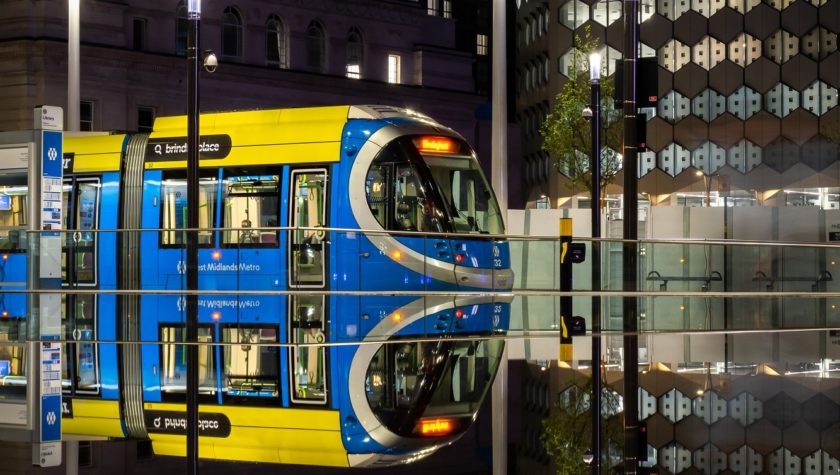Enabling people to make more trips in and around our major cities is a challenge that city leaders and national government must tackle head on by making urban transport networks work better – within carbon constraints – if they are to achieve levelling up, according to a new report from the National Infrastructure Commission.
The Commission says cities will need to redouble efforts to make public transport networks and active travel options more attractive to get people out of their cars, but also be prepared to take steps to manage demand for car trips into city centres where viable alternatives exist. In turn, central government needs to ensure cities have long term, stable funding cycles to support fit-for-purpose mass transit systems.
While the long term impact of Covid on work patterns and demand for transport remains uncertain, the report warns that adopting a ‘wait-and-see’ approach will delay necessary investments that make sense in any future demand scenario, given the congestion currently experienced in many large cities.
However, the Commission also warns against wishful thinking that assumes travel will return to pre-Covid trends: “Uncertainty should be met with ambitious but adaptable plans that take account of possible changes in travel patterns, rather than doing nothing or continuing with existing plans”.
New public transport schemes or enhancements to existing services will have to be adaptive by design, with cities encouraged to consider “projects which can be modularised, with low regret first stages clearing the way for more ambitious later ones.”
Planners will need to pay attention to factors such as pricing, reliability, accessibility and safety, all of which impact on passengers’ willingness to swap their car for public transport, says the report.
The Commission emphasises that a push for better local transport systems should not come at the expense of the UK’s net zero commitments. Surface transport is the largest source of carbon emissions, and the sector faces a huge challenge to meet the interim targets in the government’s sixth carbon budget for 2035. While by 2050, the electrification of cars and vans on the road is expected to be all but complete, the earlier deadline is far more stretching – so city leaders, working with central government, need to find additional ways of cutting the carbon associated with urban travel.
Alongside public transport enhancements, policymakers should explore demand management techniques like road space reallocation or local congestion zone charges, says the report. The intention of any schemes should be to shift trips onto public transport in congested cities, rather than discourage people from making trips. The report stresses that “while fiscal measures to manage demand may generate some revenue which can be spent on improving local transport, the primary aim is to make best use of the available space in congested cities.”
National Infrastructure Commission Chair Sir John Armitt said:
“We must resist any idea that travelling into and around our cities is a social ill. Making it easier for more people to travel in and around them, in a low carbon way, is an economic and social necessity.
“With many cities already back to pre-pandemic road congestion levels, a shift in demand from cars to public transport and active travel is the most sustainable route open. In some places this transition will need to be supported by demand management schemes, carefully designed to shift rather than reduce journeys overall.
“More trips with fewer negative impacts would be challenging to deliver in normal times, but it’s doubly so with the fog of uncertainty generated by the pandemic. Cities have to remain ambitious in their visions for the future, but base that ambition on plans which are flexible enough to cope with whatever the future holds.”
Today’s report highlights the extent to which the Covid-19 pandemic has changed the urban work environment, with 14 per cent of adults working exclusively from home and 24 per cent of people working to some sort of ‘hybrid’ pattern last month. And while visits to workplaces in the seven largest cities outside London have increased in recent months, data from Google show they are still 30 per cent lower than before the pandemic.
– Ends –
Notes
- As part of its work on the second National Infrastructure Assessment, the Commission is examining the role of infrastructure in supporting the levelling up agenda. Part of that includes a specific strand of work focused on urban mobility and congestion, looking at how mass transit systems can improve productivity in UK cities and city regions, alongside demand management measures.
- Today’s report reflects the Commission’s developing policy thinking and the areas of urban transport planning on which it will make recommendations to government – including on funding – in the final Assessment, due in 2023.




